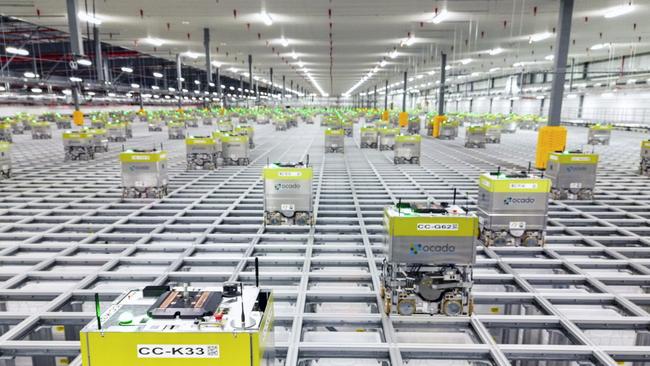NextGen column: Dead internet theory alive and well in age of AI
If you’ve noticed that the internet doesn’t feel as vibrant or authentic as it once did, you are not alone. But is it just techphobia?
QLD Business
Don't miss out on the headlines from QLD Business. Followed categories will be added to My News.
The internet feels less human. That’s because it is.
If you’ve noticed that the internet doesn’t feel as vibrant or authentic as it once did, you are not alone.
You see it in the soulless, generic articles flooding news feeds, the endless comments that say nothing but exist to bait engagement and in the millions of fake accounts that are purged each year after being revealed as bots.
It’s that unshakeable feeling that something isn’t right, that the people and content you interact with are somehow less ‘human’ than before.
There’s a name for this theory: the dead internet theory. It suggests that much of the internet is an ecosystem dominated by bots, algorithms and synthetic trends designed to regulate what and when we see content online leading to continuous disinformation and an environment ripe for scams.
For years it has been dismissed as a tech-phobia. As late as 2021, journalists from the Atlantic speculated the dead-internet theory felt true but was completely false – that real people still made up the majority of interactions on the internet.
In 2025, this argument is far harder to make. The internet is in intensive care with fewer human interactions and many more interactions with AI bots.

Cybersecurity company Imperva estimates that just under 50 per cent of internet traffic in 2023 was bot-generated. Whether or not you believe it’s real, the symptoms certainly are as we begin to lose trust in what we see, what we hear and who we engage with online.
And this raises an important question for us.
Is there value in a humanity-prioritised internet and how do we reclaim that value?
First, let’s examine a few examples that are happening now.
ChatGPT and other AI tools are being rapidly adopted across industries – helping humans write and produce content far more efficiently. This is a positive side effect of the technology – allowing for an abundance of content whether you are a small business or a massive corporation as long as there is human oversight also known as ‘human in the loop’.
However, state-backed bot networks are already using these tools to flood platforms with human sounding disinformation with real life “bot vs. bot” arguments on social media being witnessed by unaware humans stuck on the sidelines.
In this world, mass opinion becomes a game of influence — of who controls the largest, most convincing networks. Not whose ideas are best. Even trusted information spaces aren’t safe. As a stock market enthusiast, I often read articles and prioritise speed of information to keep up to date.
However, many investor sites now use AI to churn out articles, often riddled by false logic or conclusions as to why stock movements are happening.
Language models don’t have financial literacy – they just sound like they do which is even more dangerous. That’s not efficiency — it’s deception.
This goes beyond financial decisions – recently Sports Illustrated was exposed by Maggie Harrison Dupré from Futurism for inventing whole human AI personalities – with profile pictures and background information to go – that would churn out articles. Readers build trust in journalists, in their personality
and their reputation. The use of AI to impersonate is an attack on ethical media as their readers build trust with ghosts.
This is why a humanity-prioritised internet is needed more and more.
Technology should expand human potential – not replace the human input entirely – but right now it is creeping into our opinions, our creativity and in a lot of poor implementations is not enhancing content on the internet.

We fix this by implementing the following tools and principles.
1. Building in AI-generated text detectors into social media. This is already done for images and tools exist that can detect AI text. Companies like OpenAI should lead the way in embedding detection protocols in their own outputs.
2. Increased accountability for all technology companies. Bots are not a new problem, but they are a big problem. Social media platforms should be compelled to prioritise bot removal over vanity metrics of growth.
3. The Australian Government AI Ethics Principals are a strong start – especially with a focus on human centred values – but it is very likely you’ve never heard of them. These need to go mainstream.
4. The most important part is to contribute. Your human voice is needed on the internet more than ever. Without a sustained voice, there is a vacuum that is easily filled by bad actors. Write real articles, take real photos, and post real tweets/posts. Breathe life back into the internet. A human internet only works if the humans show up.
Many of us feel nostalgic for the early internet: messy forums, weird personal blogs and niche communities. It was clunky and chaotic. But it was human.
We don’t need to ditch AI. We need to continue to use it as it scales up.
Businesses should responsibly use this technology to build efficiency, streamline workflows and grow. But we can’t lose authenticity – something only we — actual humans — can bring back.
Rion Ahl is the former lead of AI and Innovation at the Turner Institute and Consultant at 30South.com.au




